Kokusaba: More Than Just International Tutoring
Meet the fresh-faced duo redefining the educational experience for international kids in Japan
Navigating Japan’s educational system as a student or parent can be exceptionally tricky for those with international backgrounds. Students have to decide whether to enroll in an international school or join the country’s sometimes confusing and unique public education system.
Both avenues have their own set of pros and cons, but what many schools lack is a real set of personal guidance or mentorship program. What’s needed is a social and educational support system for those wanting to get the most out of their time at school in order to achieve their educational ambitions.
Tutoring with understanding
Which is where Kokusaba steps in: founded by university students Isha Bahar and Minoru Anderson, Kokusaba is “an internationally-minded tutoring service made by students, for students,” Isha explains. “We provide one-on-one tutoring with university-level tutors who have been through what their students are going through now.”
“Our role” explains Minoru “is to match international students in Tokyo with the perfect tutor who can assist them on a level more similar to a supportive mentor than just an instructor.” Since launching, the pair have created a vastly international network of skilled tutors who guide and mentor ambitious students. We chatted with the inspiring founders about why they started the company, how their personal experiences came into play, and how Japan’s educational system could improve to benefit its students.

Can you please tell us a little about your backgrounds?
I: I was born and raised in Japan. I went to a local school until grade five then I transferred to an international school. My dad was transferred to Singapore, so I went to Singapore for five years to finish my high school education. I really missed Japan during that time, so when it was time I decided to come back, which is also why I chose Waseda.
Because I went to an Australian international high school, I graduated in January 2016 and had a lot of free time until the Japan university year started, so I decided to work part-time in a tuition school. I fell in love with the place—I liked the approach of a flexible at-home atmosphere at the school.
It also made me realize that tutoring went beyond just teaching academics. I knew personally how hard the transition between international and Japanese schools could be, so I wanted to create something like that for international students in Japan.
One of our proudest moments is when a student ‘graduates’ and no longer needs Kokusaba tutoring because it means we’ve achieved what we set out to do.
M: I had the reverse experience; my mother is Japanese, but I grew up in Canada. When my family moved back to Japan, I went to an international school.
I was doing so well linguistically and I felt a little guilty about that—not because I thought I was smarter than my peers, but because I just had more exposure to the language. My classmates were just as capable as me, but they just never had that linguistic experience. I’ve always been a problem-solver, and I saw Kokusaba as a solution, so we went for it.
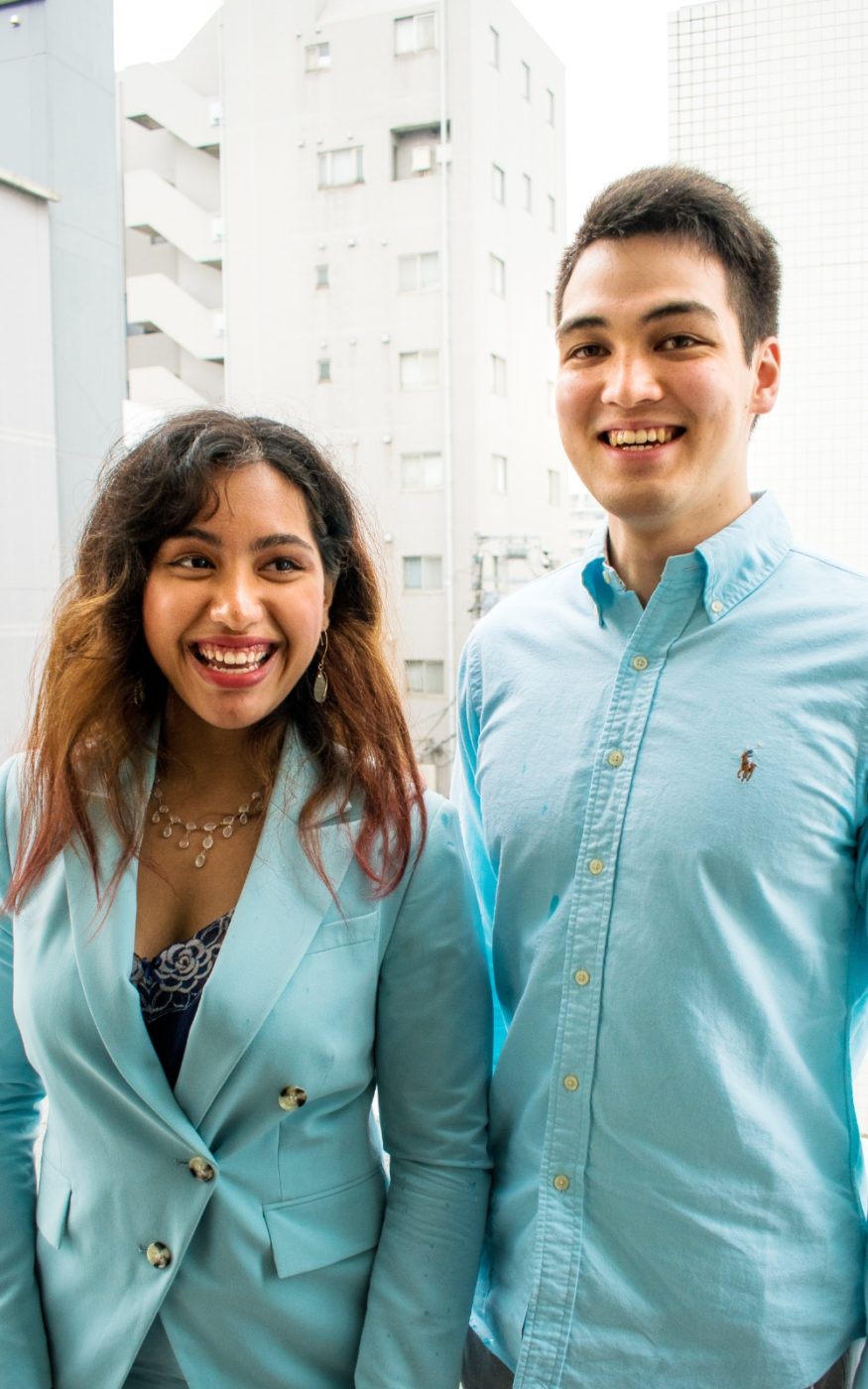
Did you plan on having a career in education?
I: I’ve always been interested in everything but not excellent at one particular thing, so I never knew exactly what I wanted to do. Once I started working at the tuition center, I realized I absorb things fast and can pass them on, which is teaching, essentially. I love teaching, passing knowledge on to students, and seeing them grow.
M: My parents had backgrounds in education, but it wasn’t necessarily something I had planned on doing. That being said, I do like the idea that a good mentor can define a student’s life, and how a great teacher can connect and inspire people, like what my teachers did for me—knowing that, I saw Kokusaba as an opportunity to find mentor figures in the university community and help them help others.
I don’t see English the same as math or science—without language, you can’t communicate but people don’t treat it like a tool or skill that’s necessary.
So, what do you think makes a great teacher?
M: To select tutors, we have a specific process. First and foremost, we look at what kind of person they are. They should have great academic credentials, but also a great personality. Having previous experience teaching is a requirement, too.
A good tutor is someone who gets what it’s like to be in the shoes of their students. Being able to guide students through academic life and give them the confidence to seek their own answers is what makes a great teacher. Good teachers should not only give you information but also motivate you to seek out knowledge and skills for yourself.
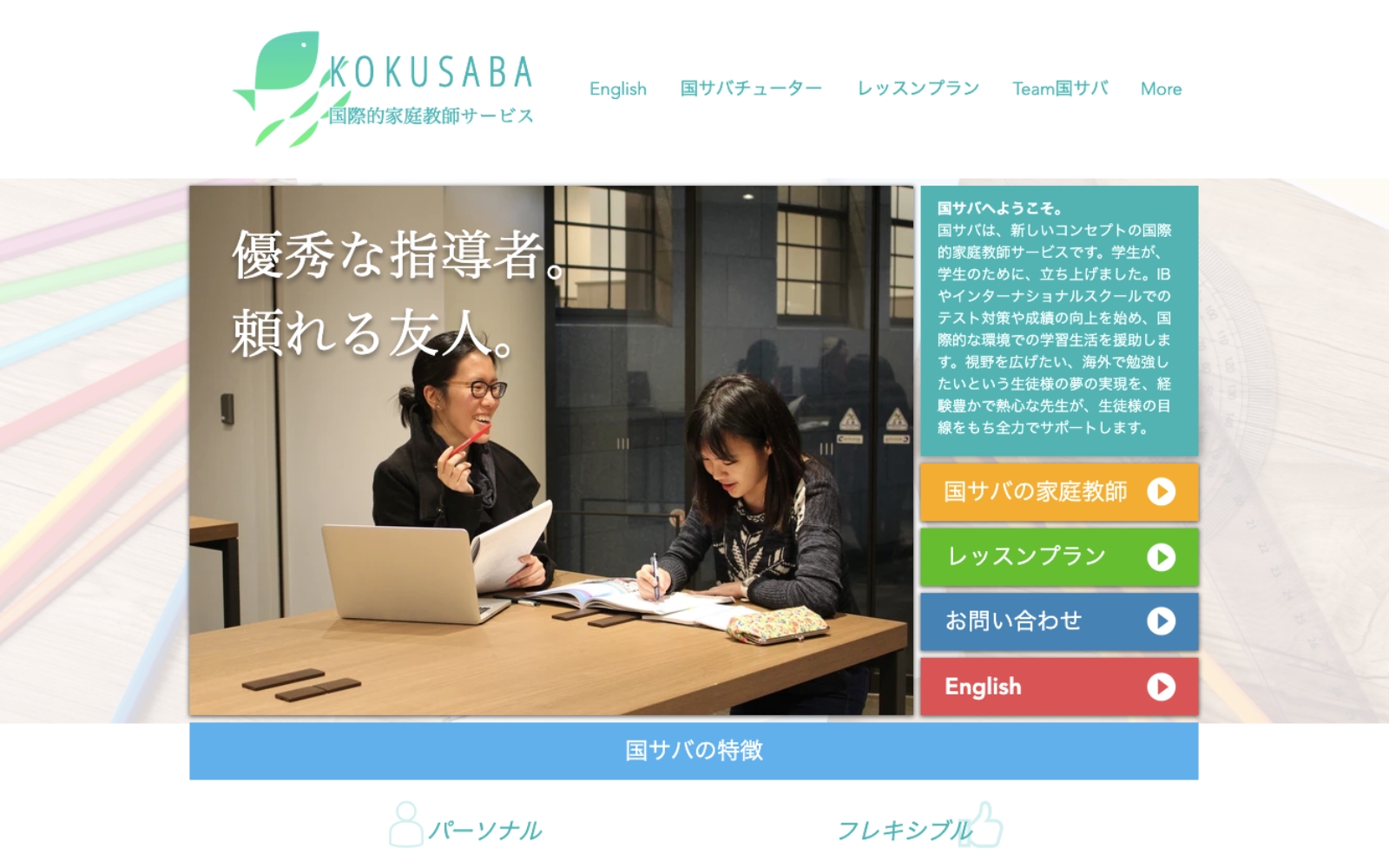
Run us through the process of setting up Kokusaba
I: We started with an international school spree! It was a way to partner with the schools to find students who may need assistance and to ensure that what we do teach them aligns with what they’re actually studying so the information was relevant. We wanted to work alongside the schools’ vision.
M: Once we had set up our business plan and hired our first group of tutors, we went to the international schools, starting with ones we had attended and pitched the idea of Kokusaba to. We made it clear that the nature of the partnership can be as formal or informal as the school requires.
What have been some of the biggest hurdles Kokusaba has faced?
M: I think most recently what we’ve faced is keeping a good equilibrium between students and tutors. If we bring all these talented tutors on board but can’t introduce students right away, they may move on. On the other hand, if we don’t have enough tutors ready for students, we have to keep them waiting. Now we have about 45 tutors teaching and on call, and 30 active students, which is a good balance.
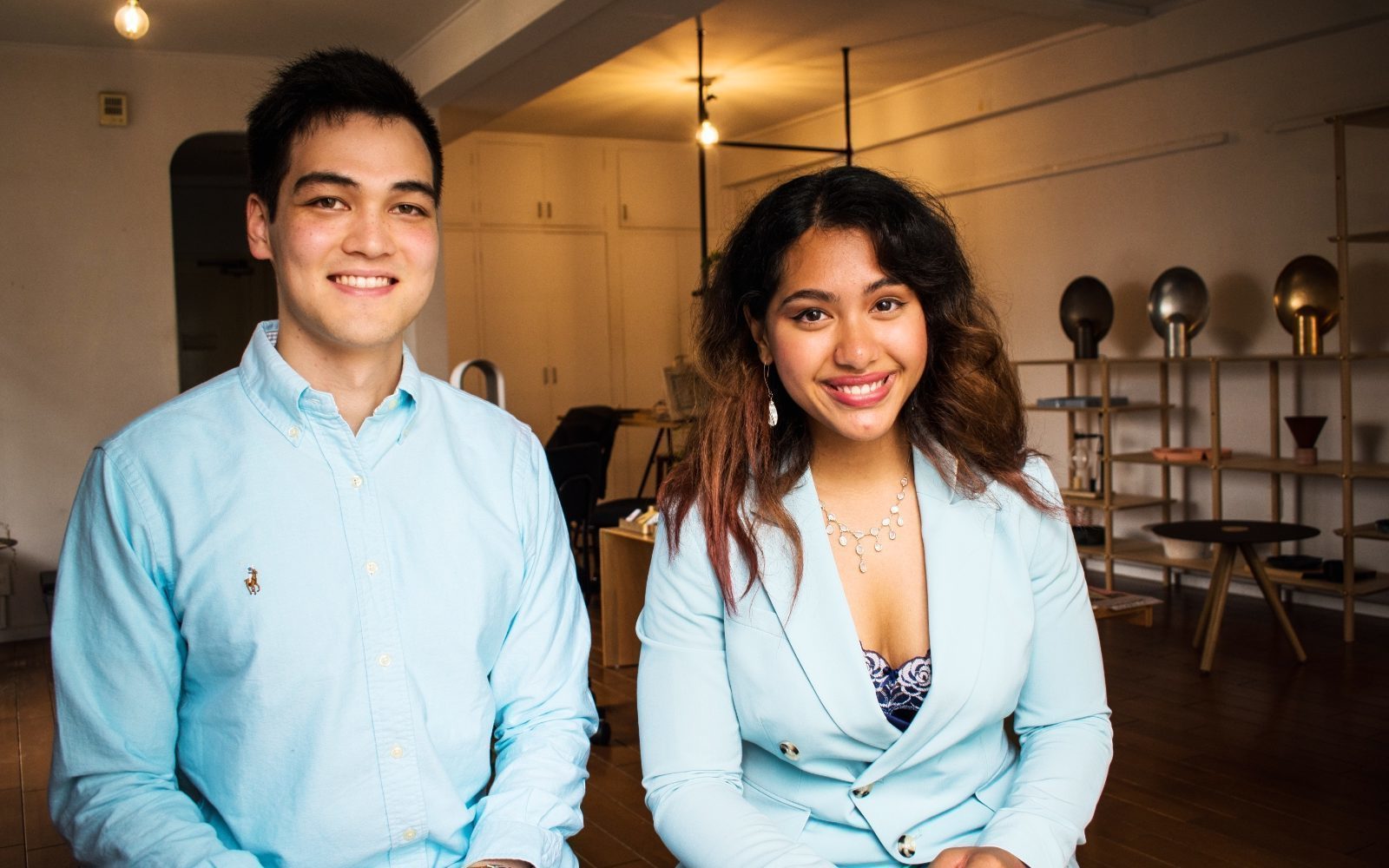
Looking bigger, what do you think are the shortfalls of Japan’s educational system?
I: I realized that because Japan is such a homogeneous country, many people don’t feel the need to learn English, so it’s treated like any other type of subject instead of a communication tool.
I don’t see English the same as math or science—without language, you can’t communicate but people don’t treat it like a tool or skill that’s necessary. Instead of understanding and analyzing texts as students do in Japanese, English is treated more like a puzzle, a ‘fill in the blanks’ type scenario. That’s the main thing I realized.
Some tutoring companies may lead students into a relationship of dependency with their tutor because the longer they stay, the more money the company makes. That’s something we’re firmly against.
There are translation tools out there, but face-to-face human connection is very valuable. I think if people could communicate better, the world would be a more harmonious place.
M: The focus seems to be more on inputting, interpreting, and outputting facts. I think there needs to be more of an emphasis on developing the skills to form your own opinions, be creative, and take the initiative to think for yourself.
What do you think the Japanese education system does well?
M: I admire the focus on giving back to the community. At the Japanese school I went to, we did a lot of community activities and extracurricular activities. It develops a spirit of companionship and harmony, which is extremely important.
I: Consideration of others and morals, I think that’s something that could be applied to other systems. I think discipline is interesting too, though there are positive and negatives to that aspect. Hierarchy can be too strict in my opinion, however, respect and discipline are valuable. I think extracurriculars are what teach this value the most, and in Japan, clubs are very student-led, which I think is excellent.

What are some of your favorite success stories?
I: My favorite moments are going to the schools and getting to know the students. As a tutor, I love getting to know them and helping them to succeed.
M: It’s a special feeling when you get notes from parents and students saying ‘thank you, I just got into the university I was hoping for,’ and other success stories. Hearing from them makes you realize Kokusaba’s not just an idea anymore—it’s changing lives. That’s very gratifying.
Some tutoring companies may lead students into a relationship of dependency with their tutor because the longer they stay, the more money the company makes. That’s something we’re firmly against. One of our proudest moments is when a student ‘graduates’ and no longer needs Kokusaba tutoring because it means we’ve achieved what we set out to do.
What do you want Kokusaba to become in the future?
M: Short-term, we would like it to become the go-to place for any internationally-minded student in Tokyo looking for a tutor or mentor who understands what they’re going through. Not just students, but also for tutors who want a well-paying teaching job in a great environment and a chance to help fellow students; we want to be the place for people seeking that as well.
I want to help them access their potential and help raise Japan as a more globally active nation. If I can help Japan globalize, that’s the dream.
I: [That’s a good reminder;] I tend to be ultra-focused on the students, but at some point, I realized we’re also providing lots of people with part-time jobs. Especially for university students with international backgrounds, it can be hard to find part-time employment in Japan. We definitely want to build a more extensive network of employment opportunities.
On a wider scale, I feel like there’s so much potential for Japanese students, but they can’t reach it because of the limitations of the traditional educational system. There’s an increase in Japanese students going to international schools, and there are more international people coming in. I want to help them access their potential and help raise Japan as a more globally active nation. If I can help Japan globalize, that’s the dream.
For more information about becoming a Kokusaba student or tutor, visit the website here.














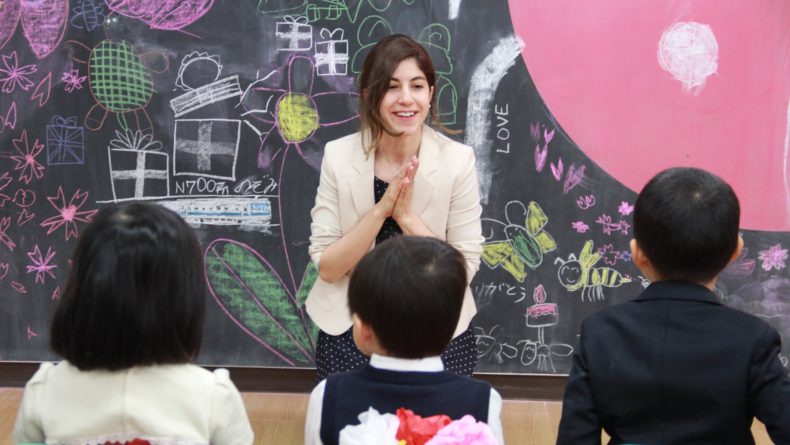
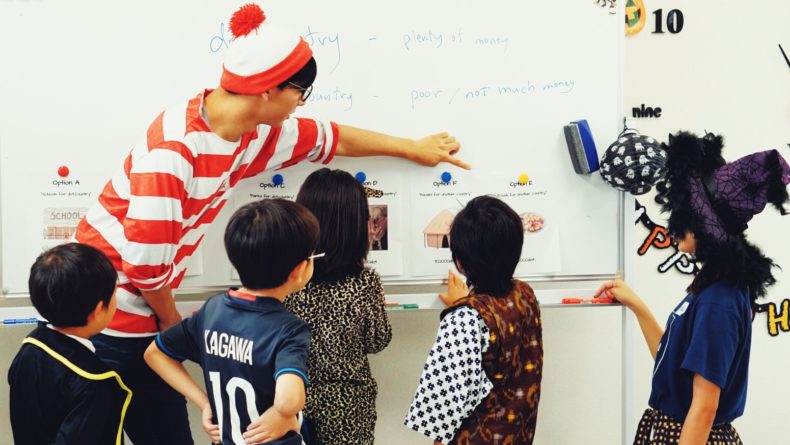
Leave a Reply